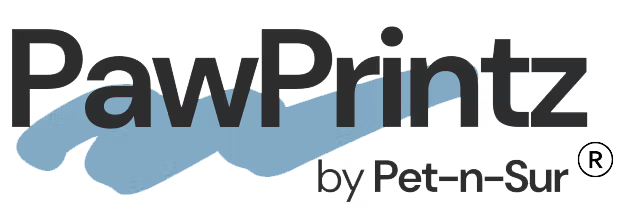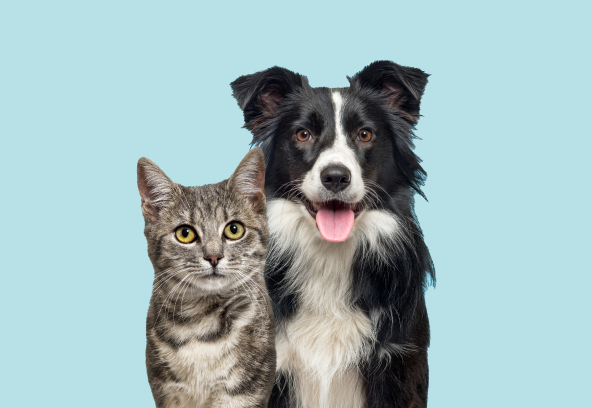In this blog, we'll address the most common questions we get, providing answers for experienced pet parents and those considering the joy of pet companionship.
10 July 2024
Pet ownership is rewarding and exciting, but let's admit it—filled with a few uncertainties. One area that frequently sparks curiosity and questions is pet insurance. In this blog, we'll address the most common questions we get, providing answers for experienced pet parents and those considering the joy of pet companionship.
How much does pet insurance cost?
We get asked this question a lot. The simple answer is that it all depends.
The cost of a pet insurance policy depends on the type of pet, the breed, the age of the pet and the type of cover. If you are interested, the costs of insuring your pet with us can be found on our website.
Importantly, there are costs in not having insurance, as we have outlined previously.
What is co-pay?
A co-pay, short for co-payment, is the amount of the covered expenses that you are responsible for under our policies.
For example, on our Rhodium Plan, if you have an eligible claim for $4,500, you would contribute $300 and Pet-n-Sur would contribute $4,200. On our Platinum Plan, the Co-Pay percentage is 20% so for the same example you would contribute $900 and Pet-n-Sur would contribute $3,600.
Now, you might wonder, why have a co-pay? Well, it's like this – we're all about finding the sweet spot between having your back financially and avoiding significant premium hikes. The co-pay makes sure a policyholder has skin in the game for pet health choices. In a nutshell, think of the co-pay as a tag-team effort, making pet insurance more budget-friendly and sustainable for both you and us.
What are pre-existing and hereditary conditions?
Pre-existing and hereditary conditions are very different things.
Pre-existing conditions mean any health problems your pet had before you got the insurance. We don't cover these in our policies because they were already there when you signed up. Pet insurance is all about helping out with unexpected issues down the road, so anything your pet had going on before won't get you any money back. Just make sure you read through your pet insurance policy details, so you know what's what.
Hereditary conditions are health issues in your pet that are linked to their breed's genetics. These conditions might not be obvious to the pet's parents, but they follow a family pattern or a breed tendency. Pet-n-Sur covers hereditary conditions that show up for the first time after your pet turns three!
Do you offer pre-approvals for vet procedures? How do they work?
Yes - we do. Pre-approval involves assessing a procedure to inform you about your cover. We only pre-approve a claim when the costs are $1,000 or more.
We just need a few days' notice and your pet's complete medical history for the assessment. Importantly, pre-approval is about checking in advance for upcoming events, not paying beforehand. It's a review before the procedure by the vet to make sure you know what might be covered and gives you peace of mind.
For more information about pre-approvals, contact our Claims Team at 0800 738 678 or email claims@petnsur.co.nz.
I have heard that you have to pay for vet bills upfront, which is unlike other insurances. Is this correct? If yes, why?
Yes - you have to pay for vet expenses upfront.
Like many other pet insurance providers, we operate on a reimbursement basis - meaning pet owners are required to pay for vet services upfront and then submit a claim to us for reimbursement.
This approach provides two advantages.
First, it empowers pet owners to choose any vet for their pet's healthcare, allowing them to pay for services upfront and later seek reimbursement. This flexibility enables pet owners to make healthcare decisions based on their preferences and cater to the unique needs of their beloved pet.
Second, it simplifies the process. Dealing with payments directly with the vet makes things less complicated. The reimbursement model ensures a smoother process for getting your money back. The insurance company can focus on reviewing and approving claims rather than managing payments to numerous vet offices.
Why get pet insurance when I can self-insure?
Deciding to go without pet insurance might sound like a good idea, but it has its risks. Here are just three of them.
First, going the self-insurance route can be effective, but it's only practical if you have sufficient funds to cover unexpected vet bills. Think of pet insurance as a safety net for your furry companion because figuring out vet costs is just as challenging as predicting your pet's next move – quite unpredictable.
Secondly, delaying the decision to get pet insurance is a bit like rolling the dice. Health issues can arise unexpectedly. The more you delay, the greater the risk that your pet could develop problems that won't be covered. On the positive side, getting pet insurance early ensures comprehensive coverage, addressing both current and potential future health concerns.
Thirdly, self-insuring requires both discipline and savings, but we understand – life can be unpredictable. With pet insurance, you have a consistent monthly expense, giving you peace of mind that your pet's health is taken care of without the worry of managing a dedicated emergency fund.
One potential financial planning strategy for pet owners could be to set up an emergency fund for unexpected expenses, like vet bills, and keep adding to it regularly. Once a claim is approved and the owner gets reimbursed, they can then top up their emergency fund. This is of course not personal financial advice from us. It is general information only.
Conclusion
Taking care of your furry friend responsibly comes with its fair share of uncertainties, and figuring out pet insurance can be a bit confusing. We've tackled some common questions to help you out, whether you're a seasoned pet pro or just starting to explore the world of pets. If you've got questions about how our policies or plans work, please contact us or go to our FAQs. We’re here to help.



